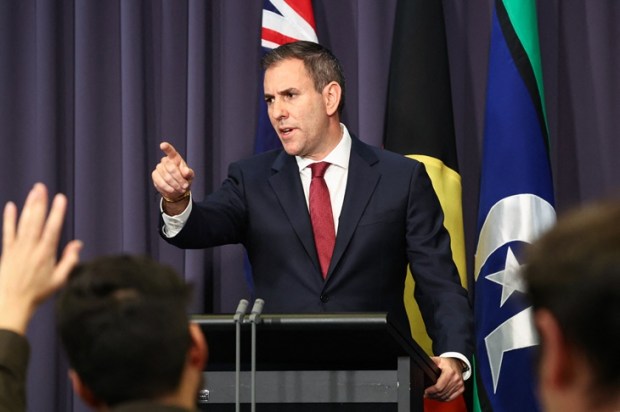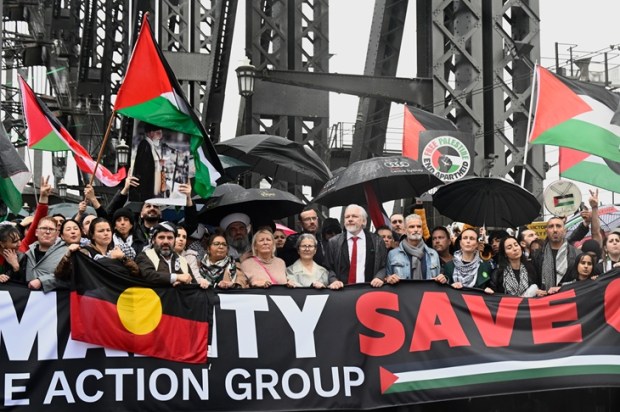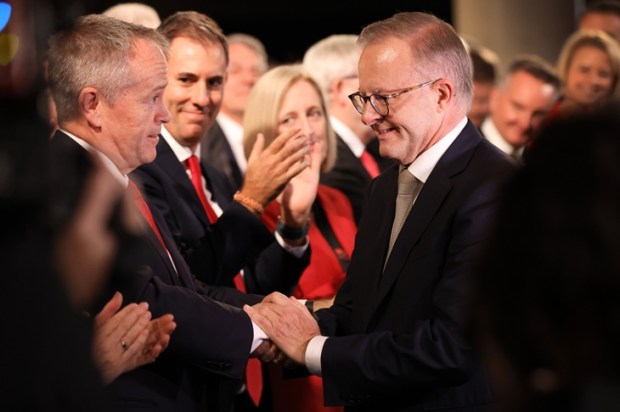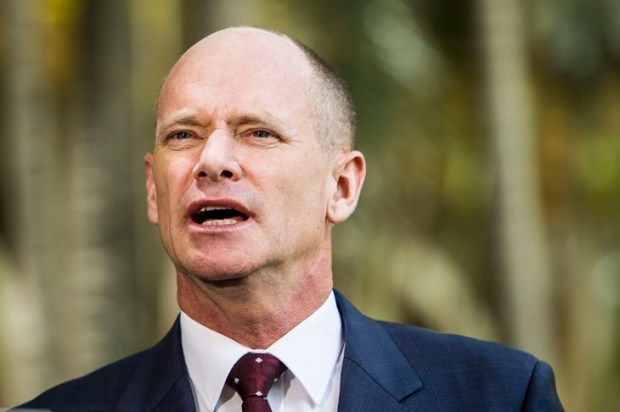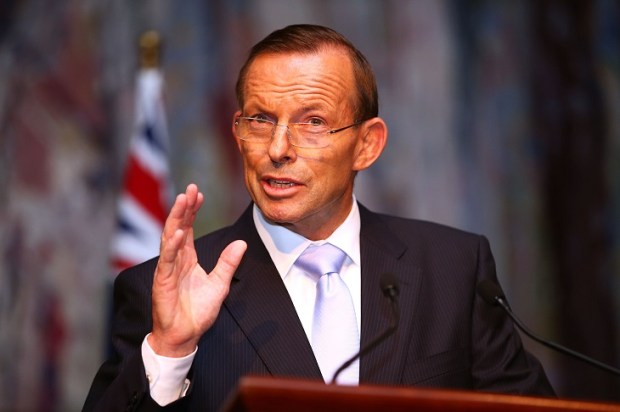Labor brought in 1.4 million migrants, created a once-in-a-generation housing crisis, oversaw a rise in homelessness, continued stagnation in real wages, a divisive Voice campaign, a total collapse in social cohesion, the release of violent foreign criminals into our communities, and the largest fall in the living standards in the OECD – and then they won the federal election.
It’s little wonder why. For one, the Labor Party are experts at creating voters. From migrants, to public servants, to union members, low wage workers, students and more, Labor policy seems designed to continue the proliferation of these voters. High immigration means more Labor voters, an expanding public service means more Labor voters, more university students mean more Labor voters, and so on.
You can call it clientelism, you can call it corruption, but that is what we are dealing with. And as the results prove, Labor is simply better at politics than their opposition. Democracy today is a zero sum game, and while the right wants to play fair, the Labor Party plays to win.
But it wasn’t just Labor’s neo-Tammany Hall politics that won it for them. On almost every issue they attempted, the Liberal Party was so tied up by internal factionalism they were soundly beaten.
On immigration, they announced meagre cuts from Labor’s record high, backflipped, backflipped again, then watched as Labor announced meagre cuts. The Liberal Party blinked early, and failed immediately to position themselves as a ‘tough on immigration’ party, as they tried impotently to balance tough rhetoric with non-stop pandering to migrant community groups, who wouldn’t have voted for them anyway.
They catastrophically fumbled the bag on international students, of which roughly one million are now enrolled in Australian institutions. Many of these students are effectively fraudulent, here not to study but to work and later gain permanent residency. These foreign students fund an extensive patronage network of hostile universities churning out anti-Australian bile and a steady stream of diehard left-wing voters. This was Australia’s equivalent of America’s ‘illegal migrant’ crisis, but despite what shills on TikTok tried to push, Dutton is no Donald.
Coming out with tougher cuts on international students – to a ratio more in line with our allies (1 in 300, not 1 in 27) – would not only have offered an almost immediate solution to the rental crisis (and by extension, the cost of living and inflation crisis), it would have helped level the playing field for future conservative wins.
On housing, the Liberal Party offered creative (if contrived) solutions to get more people into homes, especially young people. The only problem was that young people still hate the Liberal Party and the solutions wouldn’t have really fixed the real problem anyway, which is over-demand. Again, by positioning themselves as the technocratic, socially democratic, market-interventionist party, and not the more radical, national populist, ‘system change’ party, they just looked like another Labor. Their chance to recapture their aspirational roots and prioritise the return to ‘lucky country’ living standards – at a time when people wanted change – was blown the moment Dutton blankly announced he wanted higher house prices.
What is needed is not a boring, dull repudiation of the Labor Party and its failures – nor a slow-moving politics of incrementalism – but instead a new and exciting repudiation of the entire economic, social and political system we find ourselves living under.
For example: immigration doesn’t need minor reductions, it needs a fundamental reevaluation from ground up, with the first question being, ‘Do we even need it?’ The international student racket doesn’t need cuts, it needs to be completely broken apart. Australia’s housing dilemma won’t be solved by clever ideas, but a radical rethink about the role it plays in our economy. Should house prices, for example, really double every seven years?
Australia’s right is as good as dead if it does not break itself out of this tired, impotent malaise. Conservatism, as a political style, is over. The replacement shouldn’t be technocratic Labor-litism, but something new entirely. Only by framing your arguments in a more radical, sympathetic, and interesting light could the right ever hope to rouse entirely new and distinct cohorts (i.e. young people and migrants) into voting for them.
Doing so would rightly require not just attacking Labor – including their drift away from workers towards big business – but previous Liberal governments too. This would signal a serious departure from stale party politics and reflect a genuine commitment to change.
For one, it must be accepted that it was John Howard’s government that created the immigration crisis we find ourselves in today. This should not be to place blame, but rather to show that what worked back then, no longer works now.
For another, it was with thanks to Liberal Party governments that Australian jobs and businesses were sent offshore due to one-sided trade agreements. These were incredibly lucrative for a handful of people, but utterly destructive for entire communities and cohorts. Maybe they made us a little richer for a little while, but it’s clear now that we cannot just all cut each other’s hair for an economy, a rethinking for manufacturing and free trade is long overdue.
Any new opposition should stand up and denounce the failures of both Labor and the Liberal parties, as well as the failures of the minor parties. Many Australians rightly feel that it isn’t the parties, but the system itself which is no longer working for them. They feel that no matter how hard they work, they cannot achieve the living standards their parents enjoyed.
At the same time, they are seeing news reports about machete fights in shopping centres, rapidly changing demographics in their cities and suburbs, increased traffic on their streets, and constant bureaucratic attacks against their culture, their flag, and their history.
What is not needed is the continuation of this ‘politics around the edges’, wherein all debates are had over minor details of taxes or superannuation. Rather, the debate should be about the very pillars of our nation: our economy, politics, and culture. It should be a referendum on who we are and where we are going.
In a chapter titled Who are we as Americans in his book Age of Entitlement, Christopher Caldwell describes America’s political order between 1964 and the arrival of Trump:
‘The Democrats were the party of those who benefited… Not just racial minorities but sexual minorities, immigrants, women, government employees, lawyers – and all people sophisticated enough to be in a position to design, run, or analyse new systems.’
Republicans, on the other hand, were the party, ‘of yesteryear’s political spectrum’.
The Liberals find themselves in the same position. The moderate forces within conservative politics see the path to victory as ceding grounds to the leftist march, but without necessarily defining what makes them fundamentally different to the Labor Party. The other side, especially in the younger cohorts, see a radically different way forward for Australia’s right-wing.
Around the world, we are seeing what Danish Prime Minister Mette Frederiksen called a ‘paradigm shift’. A total rethinking of the last 30 years of politics and economics, defined by figures like JD Vance and parties like Reform UK. We may be far away, but we’re never far behind. To quote the meme, ‘Jesus, I see what you’ve done for others, and I want that for me.’
Jordan Knight is a Communications Adviser, Director of the National Conservative Institute of Australia and a 2025 Claremont Institute Publius Fellow.



